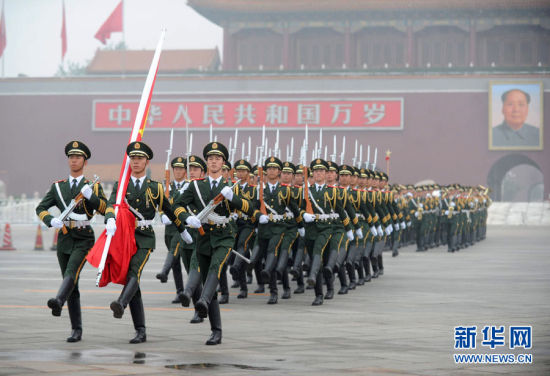A debate at US think tank: Does China seek to undermine the "rules-based" international system?

The Center for Strategic and International Studies (CSIS), a US think tank in Washington, D.C., recently held a conference on the challenges and opportunities presented by China’s rise. The China Power Conference featured a series of debates between leading experts from both sides of the Pacific. The debate was extensive, covering various aspects of Chinese power. One debate centered on the proposition that China seeks to undermine the “rules-based” international system. Most of the experts agreed that while China may want to improve the current system, it does not want to tear it down and start over again.
Aaron Friedberg, Professor of Politics and International Affairs at Princeton University, argued for the proposition. Zhao Suisheng, professor at the Josef Korbel School of International Studies at the University of Denver, argued against the proposition.
Before and after each debate performance, the audience voted on whether they agree or disagree with the relevant proposition. At the beginning of the debate, 57 percent (72 out of 126 votes) disagreed with the proposition that China is trying to undermine the system. The percentage remained unchanged even after the debate: 57 percent (97 out of 171 votes) disagreed.
Arguing in the affirmative, Friedberg called China a revisionist state. Friedberg does not think that China is trying to undermine the system, but he does think that China is unsatisfied with its current position. China “is not content with every aspect of the existing order,” Friedberg said. His statement raises an interesting question. Why should China be expected to be content with every aspect of an order created when the USwas powerful and China was weak?
Zhao argued more so from the perspective of China. He noted that China is a major contributor to key Western institutions. For the year of 2015, for example, China contributed $16,675,884 to the WTO budget and the budget of the Appellate Body, according to the WTO website. Not only is China the second largest contributor to the WTO, but China contributes greatly to other international institutions. China benefits greatly from the system. However, as both experts argued, China wants to gain better position.
After the Second World War, the US led the creation of what is commonly known as the Western liberal order. At the time of its creation, the USwas very powerful and China was very weak, relatively speaking. Zhao said China accounted for only two percent of global GDP; and the USaccounted for about 50 percent of global GDP. Given the large imbalance of relative power, the system was created without concern for China’s core interests.
The current order of Western rules and norms puts modern China at a disadvantage. The system was designed to benefit the West, but the character of China has remained unchanged over the years. Today, the USaccounts for less than 30 percent of global GDP; and China accounts for about 15 percent of global GDP, according to Zhao. The gap between the two countries is no longer that great and certain aspects of the system remain a relic of the past.
There is no reason for China to be content with every aspect of the existing system. It is rational for China to want to strive for a fairer system that gives the nation greater voice on the international stage and a more balanced system that makes it more difficult for the USto use its powerful position to undermine China’s core interests. From China’s perspective, the system works, but certain rules and norms should be updated to accommodate the rise of China and the new reality of the world order.

























